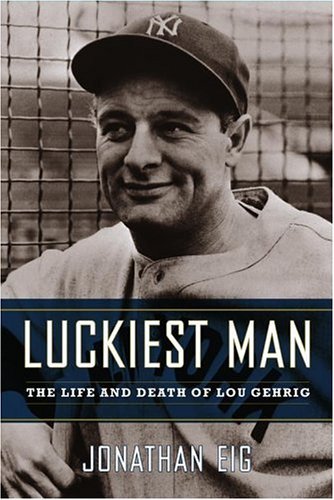

Lou Gehrig was the Iron Horse, baseball's strongest and most determined superstar -- struck down in his prime by a disease that now bears his name. But who was Lou Gehrig, really? What fueled his ferocious competitive drive? How did he cope with the illness that abruptly ended his career and drained him of his legendary power? Drawing on dozens of new interviews and hundreds of pages of Gehrig's personal and previously unpublished letters, this definitive biography gives us a deeper, more intimate understanding of the life of an American hero.
Lou Gehrig is regarded as the greatest first baseman in baseball history. A muscular but clumsy athlete, he grew up in New York City, the sole survivor among four siblings. He idolized his hardworking mother and remained devoted to her all his life. Shy and socially awkward, especially around women, Gehrig was a misfit on a Yankee team that included drinkers and hell-raisers, most notably Babe Ruth. Gehrig's wife, Eleanor, was an ambitious young woman who pursued him and persuaded him to embrace his growing stardom. For years, rumors have persisted that she and Ruth had an affair, and that this was the event that ended the friendship between the two ballplayers.
Gehrig and Ruth formed the greatest slugging tandem in baseball history. They were the heart of the first great Yankee dynasty. After Ruth's retirement, Gehrig and a young Joe DiMaggio would begin a new era of Yankee dominance. But Luckiest Man reveals that Gehrig was afflicted with amyotrophic lateral sclerosis (ALS) much sooner than anyone believed, as early as the spring of 1938. Despite the illness, he didn't miss a game that year, keeping intact his astonishing consecutive-games streak, which stood for more than half a century.
After he was diagnosed, Gehrig's doctors allowed him to believe he had a fifty-fifty chance of surviving what they knew to be a fatal illness. The same doctor who wrote him encouraging letters secretly wrote Eleanor Gehrig to tell her the terrible truth. But even as his body deteriorated and Gehrig realized he was dying, he never despaired. In his final months Gehrig proved himself truly to be the Iron Horse. The man who spoke spontaneously from the heart when he gave his great speech at his farewell in Yankee Stadium continued to sound the same themes: that he'd led a good life and had much to be thankful for.
In Luckiest Man Jonathan Eig brings to life a figure whose
shyness and insecurity obscured his greatness during his lifetime. Gehrig
emerges on these pages as more human and heroic than ever.